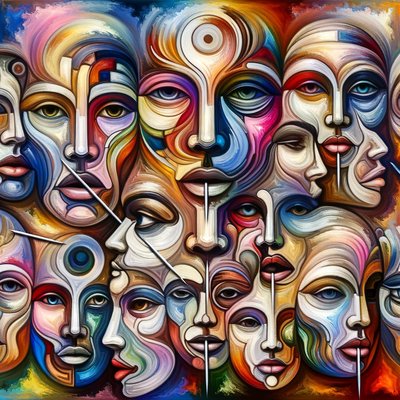|
This blog post was reviewed and approved for publication by Anne Phan-Huy M.D., a Board-certified psychiatrist at Apraku Psychiatry.
Remember the iconic scene in Rain Man where Raymond Babbitt counts toothpicks in a split second, astonishing the character played by Tom Cruise? While this moment brilliantly showcases Dustin Hoffman’s acting, it also helped to etch a stereotype into the public consciousness: that Autism Spectrum Disorder (ASD) implies extraordinary ability.
Rain Man has been pivotal in introducing the concept of ASD to a wider audience, yet it has also contributed to a skewed understanding of what it means to have an autistic spectrum disorder. In this article, we will move beyond Hollywood archetypes to explore the nuanced, multi-dimensional nature of ASD. We’ll tackle not only the spectrum itself but also the stigmas and stereotypes that often accompany a diagnosis. Ready to break free from the reel and get real? Let's go! Understanding the SpectrumWhat is the Autism Spectrum?Contrary to monolithic portrayal in media, Autism Spectrum Disorder is not a one-size-fits-all diagnosis. It’s called a “spectrum” for a reason! The term “spectrum” reflects the wide variation in challenges and strengths possessed by individuals with autism. Symptoms can range from mild to severe, and no two individuals with ASD are exactly alike. Degrees of ASDThink of the autism spectrum as a rainbow. Just as each color smoothly transitions into the next, so too do the characteristics and needs of those with ASD. The range of the spectrum is generally categorized into three “levels”:
The Fluctuating Nature of ASDIt’s essential to understand that an individual's placement on the autism spectrum is not static; it can change over time. Factors such as early intervention, therapy, and life experiences can lead to a shift in symptoms and needs. Comorbid ConditionsOften, individuals with ASD may experience other conditions simultaneously, such as attention deficit hyperactivity disorder (ADHD), anxiety, obsessive compulsive disorder (OCD), eating disorders, or depression. This phenomenon, known as comorbidity, further enriches the tapestry of experiences for those with ASD, making each case truly unique. Gender Bias in DiagnosisThe current diagnostic criteria for ASD were historically based on studies conducted on males. This has led to significant gender bias, making it more challenging to diagnose females and those who identify outside of the male-female binary. Top Highlights
Challenging StereotypesFrom popular media to casual conversations, stereotypes about ASD often seep into public opinion. Let’s pull back the curtain and debunk some of the most pervasive myths that still cloud our understanding of ASD.
The Emotional Toll of MisconceptionsThe Weight of LabelsLabels like “high-functioning” or “low-functioning,” “gifted” or “challenged” don't just stay in medical charts; they often follow individuals into their daily lives. These labels can limit social interaction and professional opportunities, often creating a self-fulfilling prophecy. Impact on Self-EsteemMisconceptions and stereotypes about ASD can significantly affect an individual’s self-esteem. A lifetime of being misunderstood or misrepresented can lead to a host of emotional issues, including anxiety and depression. Family DynamicsFamilies can also suffer due to misunderstandings about autism. The ripple effect of these misconceptions can lead to strained family relationships as parents and siblings grapple with their own sets of expectations and misunderstandings about autism. Social IsolationBecause autism affects social skills differently across the spectrum, many people assume that individuals with ASD prefer to be alone. This misconception can lead to social isolation, as peers and even family members may keep their distance, depriving the individual of vital social interaction. The Importance of Individualized CareThe autism spectrum is wide-ranging, meaning that therapies and interventions that work for one individual may not be effective for another. Consequently, a standardized approach is rarely useful. A comprehensive and effective individualized care plan often involves a team of professionals: in addition to psychiatrists, the team may include speech therapists, occupational therapists, psychologists, and even nutritionists. The collaboration among these experts ensures that each aspect of an individual’s well-being is addressed. Of course, it isn’t all about the professionals; family and close friends play a crucial role in the well-being of those on the autistic spectrum. Individualized care often incorporates the family, ensuring that everyone is on the same page when it comes to treatment and coping strategies. These coping mechanisms and emotional strategies are tailored to each person’s unique needs, ultimately leading to a higher quality of life. Conclusion: Breaking the Mold, Embracing DiversityFrom well-known film characters to everyday interactions, misconceptions about Autism Spectrum Disorder persist in our culture. These misunderstandings can not only perpetuate harmful stereotypes but also have emotional consequences for those on the spectrum and their families. As we’ve explored, it’s crucial to go beyond surface-level perceptions and recognize the complexity and diversity inherent in ASD. Understanding the autism spectrum in its full scope and scale is not merely an intellectual exercise — it’s a necessary step for offering truly effective, individualized care. By seeking to understand each person’s unique experiences and needs, we move closer to fostering environments that are genuinely inclusive and supportive. This blog post is brought to you by Apraku Psychiatry. Apraku Psychiatry is a private practice offering video appointments with Board-certified psychiatrists licensed in multiple states. More blog articles can be found here. To schedule an appointment with one of our psychiatrists, patients can complete the online booking form. Comments are closed.
|
Copyright © Apraku Psychiatry 2024


